CHANGEMAKING TAKES A TEAM
HOW SPORT, PLAY, AND PHYSICAL ACTIVITY HAVE THE POTENTIAL TO SHIFT MINDSETS

HOW SPORT, PLAY, AND PHYSICAL ACTIVITY HAVE THE POTENTIAL TO SHIFT MINDSETS
Ashoka is the largest global network of leading social entrepreneurs—individuals with new ideas to systemically address the world’s biggest challenges and the entrepreneurial skill to transform those ideas into national, regional, and global social impact. Over 40 years, Ashoka has supported nearly 4,000 social entrepreneurs in more than 90 countries with solutions addressing society’s most pressing issues. Ashoka’s vision is a world in which Everyone is a Changemaker—a society that responds quickly and effectively to challenges, and where everyone has the freedom, confidence, and societal support to address any social problem.
The Ashoka Sport for Changemaking Team leverages a collective 20+ years of experience using sport as a platform to create societal change. Our expertise draws across diverse experiences as practitioners, researchers, and innovators who understand how sport intersects across industries and impact areas. These experiences have allowed us to connect with and learn from social entrepreneurs, policymakers, and industry experts to explore the opportunities and obstacles to foster a sports ecosystem where every person is a powerful contributor for the good of all.
Ashoka Sport for Changemaking Team: Kelly Davies, Hector Moyeton, Iveren Ityoikaa, and Alex Richmond.
The Ashoka Sport for Changemaking Team would like to thank our extended team of teams, Ambika Aggarwal, Andrea Nijssen, Asier Ansorena, Debora Komukai, Haruna Ashigaki, Jose David Lopez, Nicolo Marangon, and Ovidiu Condurache as critical collaborators on this report and team members in advancing sports role to create an EACH world.
To all the participating Ashoka Fellows and sports changemakers who shared their insights and experiences with us, thank you!
Design. Ashoka’s Sport and Changemaking team would like to thank the Ashoka Creative Studio for providing the design for this report.
CONCEPT AND DESIGN:
The Creative Studio. Ashoka’s In-house Creative Agency

Creative Director: Edward Edilbi | Design team: Mariana Sauna, Anita Champion.
Account Manager: Michelle Moyes.
of changemaking in the realm of sports.
In a rapidly changing world, sport has remained a constant, not just as a driver of health, but also a cornerstone of socialization and culture. Sport is a mirror of society, reflecting to us the challenges we face daily like sustainability, social justice and more... Yet it continues to transcend boundaries, unite people from all walks of life, and enables social and individual transformations to happen. In fact, to be successful in sports, one must possess the mindset and demonstrate the very same skills needed to thrive in an ever-changing world: shared leadership, empathy, teamwork and changemaking.
From health and happiness to education and society, sports truly matter. They possess a unique ability to captivate our hearts, ignite our passions, foster a sense of belonging, and create a shared identity. Yet beyond the realm of entertainment and athletic prowess, sports currently possess an untapped potential to be a force for good.
Therefore, this report highlights the extraordinary potential of leveraging sports as a catalyst for positive change and presents the opportunity to build an ecosystem where everyone feels invited and able to contribute.
Within these pages, you will embark on a journey that explores the intersection of sports and changemaking, shedding light on the profound impact sport changemakers can have on other individuals, communities, and society as a whole. It showcases the remarkable individuals and their organizations that have embraced changemaking as a fundamental part of their sporting journeys.
Whether it is empowering marginalized communities through inclusive sports programs, championing gender equality and diversity, addressing pressing social issues through sports-based initiatives, or utilizing sports as a platform for education and personal development, these changemakers are paving the way for a more inclusive, equitable, and compassionate world.
The report not only captures the inspiring stories of sport changemakers that have harnessed the power of sport - it provides insights into how they are envisioning and (re) creating the institution of sport, underpinned by the values and skills needed to thrive in our rapidly changing world. It presents a comprehensive analysis of the strategies, challenges, and opportunities that arise in this arena.
As you immerse yourself in the stories, insights, and perspectives contained within this report, we encourage you to reflect on the immense potential that lies within each of us to effect change. We invite you to explore your current connection to these insights. To question how you can strengthen your relationship and actions towards this new institution. By surfacing and understanding our own role, we can strengthen a collective that approaches the future of sport in a very intentional way.
I would like to express my heartfelt gratitude to Hector Moyeton and Alex Richmond (from the Sport for Changemaking team at Ashoka) who have dedicated their time, expertise, and passion to create this comprehensive and
It is with great pleasure and enthusiasm that I introduce this remarkable report, which delves into the transformative power
thought-provoking report. Their commitment to exploring the transformative potential of changemaking in sports has yielded invaluable insights that will undoubtedly inspire and inform individuals, organizations, and policymakers alike.
May this report serve as a guiding light, inspiring us all to recognize and embrace the profound impact that sports can have in creating positive change. Together, let us harness the power of sports and changemaking to shape a better, more inclusive world for future generations to come. Unlocking this power in every individual is the only way to enable the kind of world we need, where solutions outrun problems, and seeking the good for all becomes the norm.
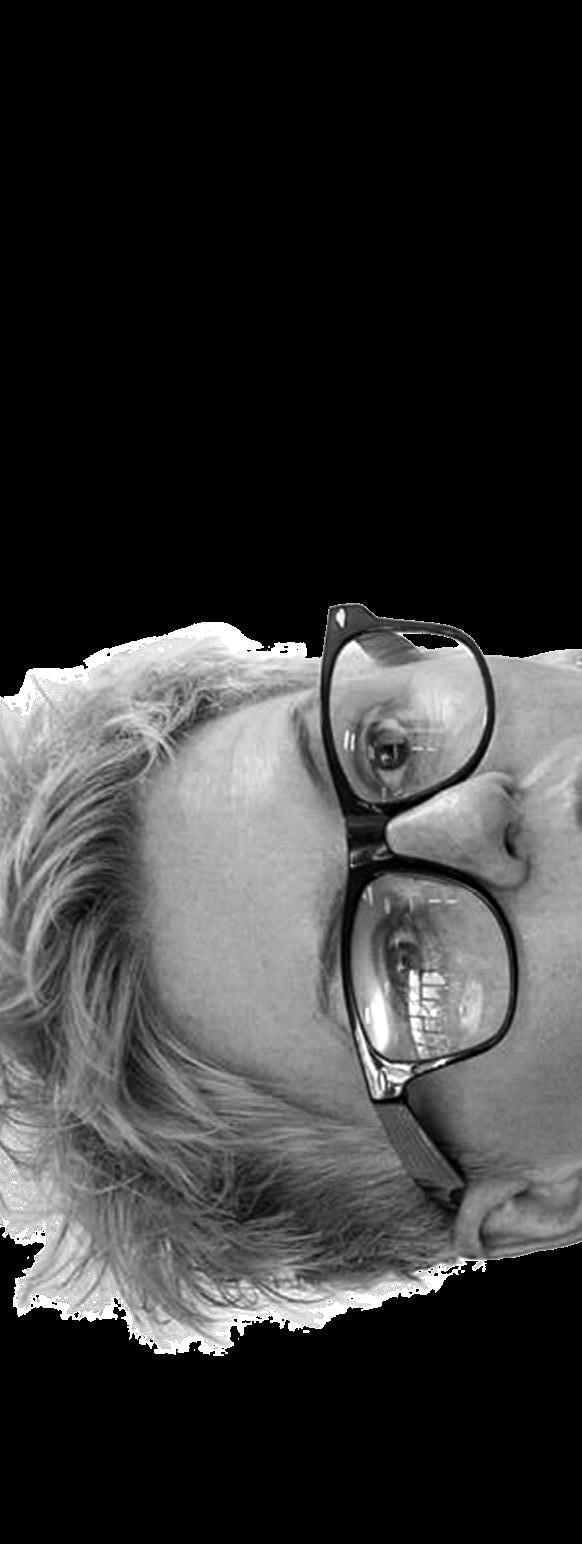
Yours Sincerely,
Kelly Davies.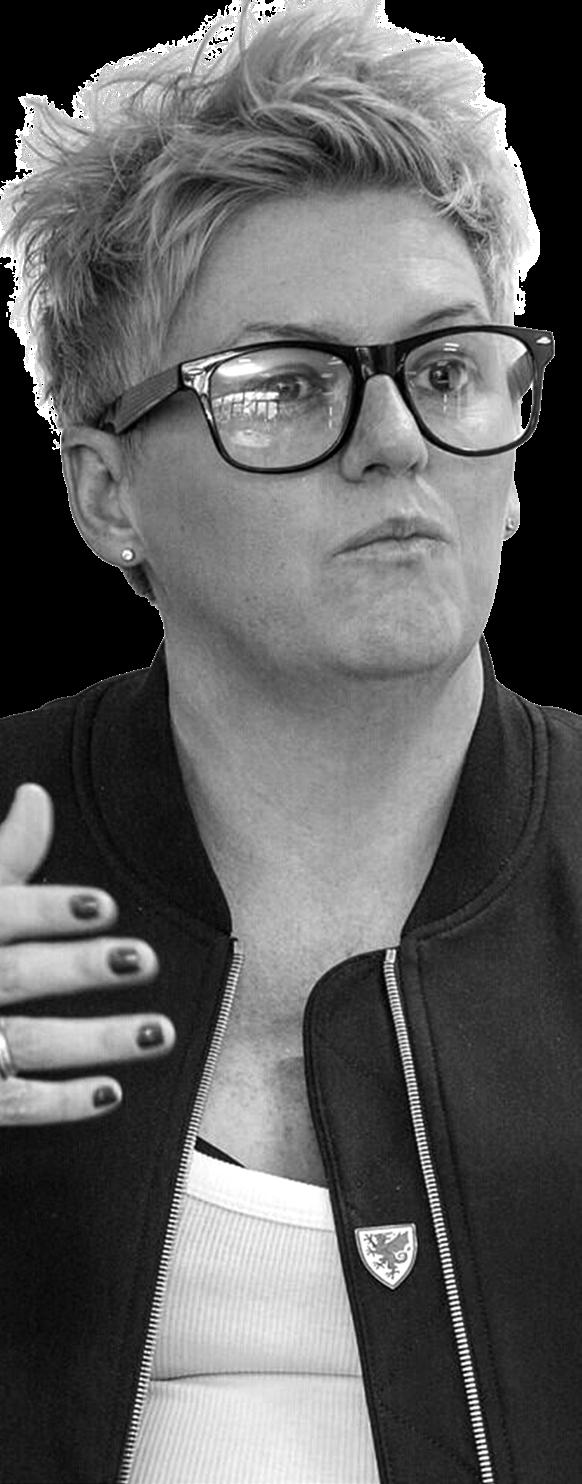
What would happen if everyone in the sports ecosystem saw themselves as powerful contributors to the good of all? Coaches, business leaders, fans, officials, media presenters, teachers, and athletes at all levels have a role to play in actively imagining and creating a future in which everyone can thrive by using sport as a platform to create societal change.
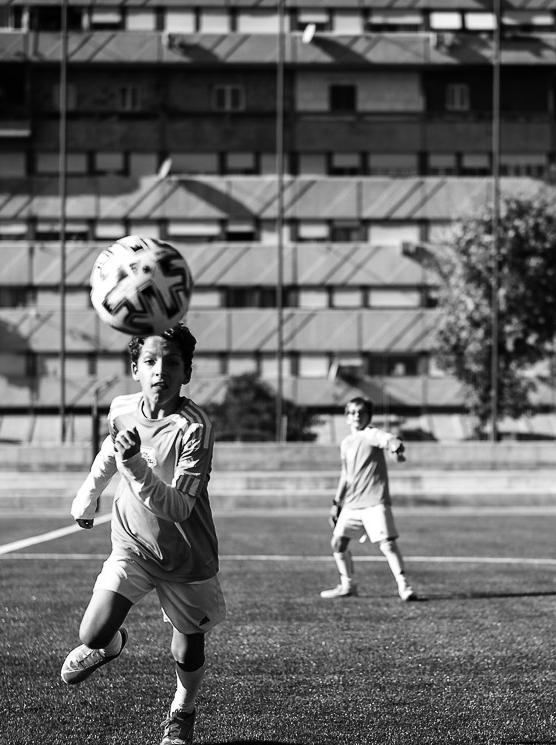
As innovators for the good of all, sport changemakers offer a unique perspective to advance the platform of sport as a contributor to the good of all. This report is an invitation to explore together how to intentionally leverage sport as a platform towards a more just, equitable and regenerative world. We believe this platform can progress and empower all stakeholders within this ecosystem to be changemakers.
For the avoidance of doubt, all references to the term sport adheres to the United Nations definition whereby, “sports are all forms of physical activity that contribute to physical fitness, mental wellbeing, and social interaction. These include play; recreation; organized, casual or competitive sport; and indigenous sports or games” (United Nations Inter-Agency Task Force on Sport for Development and Peace, 2003). As you read, you will find four shifts surfaced from 30+ interviews with Ashoka Fellows using sport as a platform for positive change. These shifts are more than just theoretical solutions: they are patterns or methodologies for change being employed by social entrepreneurs around the world.
Sport changemakers believe that sport is a unique means to learn, build identity and enhance the lives of individuals. They help people develop an identity as someone who wants to do the right thing, shifting the mindset from becoming “better athletes” to “better people” and fostering the values of a good citizen – empathy, leadership, teamwork, and agency - particularly for children and youth. By prioritizing the educational, health and social development outcomes of sport, the developed identities activate the agency of the individuals. It brings different perspectives
to their lives and prepares them to play responsible and constructive societal roles.
Outdated societal frameworks can prevent participation in sport for certain groups of people because of their age, gender, class, disability, or race. Sport changemakers are working to narrow these gaps by challenging perceptions not only in the field of sports but also in wider society. Many of them use sports to foster inclusive and empathetic communities to improve social cohesion by promoting active learning and new relationships across social groups. Through active engagement in sport, we can challenge stereotypes and make sure everyone feels valued and confident in playing their part.
SHIFT C
Many sport changemakers recognize the accessibility and intersectionality of sport to bring people together creating a shared sense of identity. Many people come in contact with sport, whether it’s practicing it or watching. Sport allows changemakers to reach everyone, from young children to the elderly. Sport can nurture leadership identities that care for others in the community, society, and world and take actions to make
positive changes. Ultimately, people benefit from this community of peers as a “healing mechanism” revaluing community spaces, turning run-down infrastructure into thriving and sustainable community hubs, and even feeding into professional sport to enhance its social contribution in the community.
SHIFT D
The sport industry first and foremost focuses on performance and competition with a strong business-oriented mindset. Although this mindset has been successful in attracting more people to sport, it tends to overlook great opportunities to channel the energy towards societal good. As is increasingly the case in other industries, businesses can no longer exist without working towards social value creation to be truly successful. Sport changemakers are working to integrate social and human aspects of sports among clubs, athletes, and fans, going beyond the barrier separating performance sport and social change. They are using the unique platform and opportunity sport represents to contribute to positive change, expanding the focus of the sport industry from performance and businessoriented values to social contribution.
Analysis of Ashoka Fellows and sport industry expert interviews surfaced a clear need to advance radical collaboration and collective action. Five recommendations were offered as a roadmap to action:
1. Cross-sector partnerships are a key mechanism to advance positive change, whereby unique stakeholder groups can be a team player as a resource generator, impact creator or impact accelerator.
2. The way the sports ecosystem can be leveraged to effect positive change is critical. When we have a shared message, we collectively can translate that into the language of each key collaborator, empowering them to play a greater part in the movement.
3. Projects for a community cannot happen without the community. Sports collaborators must create, fund, and scale projects that foster community agency, ensuring that the expertise and lived experience of local change agents guides the decision-making framework.
4. Support sport changemakers to scale wide and deep by building and strengthening knowledge and resource networks and create and enhance messaging that influences community citizens to adopt this new sport mindset.
5. Provide resources that align with sport changemakers’ long-term commitment to advancing positive change. Sport changemakers need funding sources that are reliable and transparent, focused on long-term processes within organizations and communities.
As you explore your role in shaping an ecosystem that contributes to the good of all by leveraging sports’ new paradigm, we offer these guiding questions:
• What role could sport play in your ecosystem?
• How could you leverage its platform to advance the impact goals you have?
• Who across the public, private, and social sectors will you collaborate with to enhance sport as a tool for your shared constituencies?
Over the last 6 months, Ashoka has mapped a network of over a hundred social innovators within the Ashoka ecosystem and key experts from the field using sport to realize an Everyone a Changemaker (EACH) world.
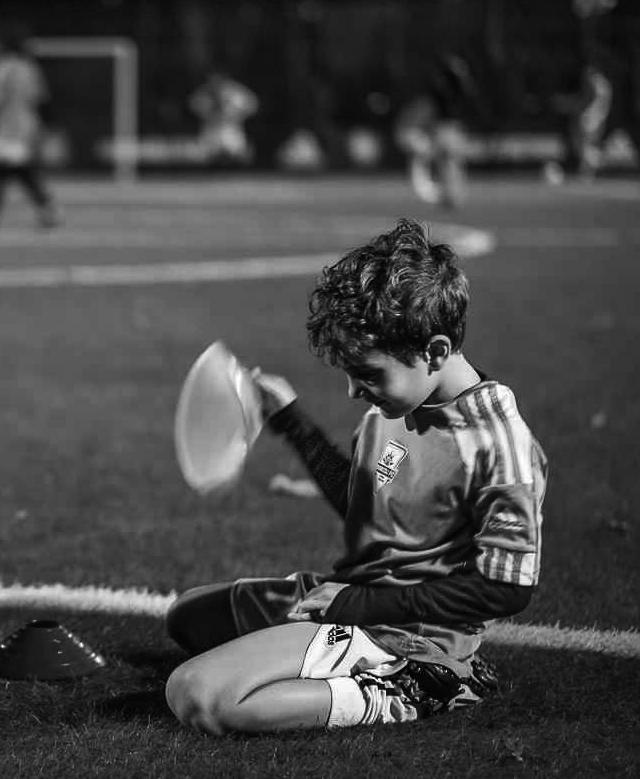
By surfacing insights from more than thirty interviews and conversations with these global stakeholders, we identified the four overarching shifts needed to mobilize the world of sport as a contributor to the good of all (See Appendix A: Signals from the future: Social Entrepreneurs Leading this Transformation).
1. Framing the field. Literature research to map the biggest issues and most recent developments within the field. Based on our findings, we collectively developed a single framing question that highlights an inspiring vision for the future. How might everyone in the sports ecosystem feel empowered to contribute to the good of all?
2. Research solutions. Sift through Ashoka’s network of over 3,700 Ashoka Fellows and their solutions to identify global ventures that best align with the field and our framing question criteria.
3. Curate solutions. Select Ashoka Fellows to interview with the most relevant solutions representing diverse geographies, subfields, ages groups and identities. We then complemented their solutions with knowledge and experiences from a select group of experts in the field and other social innovators from Ashoka’s network.
4. Pattern recognition. Analyzed interviews, clustered insights and identified crosscutting patterns that were present throughout their interviews.
5. Build the framework. After identifying common patterns for the biggest issues in the field, as well as emerging solutions, these patterns were then organized into four overarching paradigm shifts to enable an Everyone a Changemaker world in this sector, and the core system-change principles that support these shifts. This report presents findings following the same structure.
This report is an invitation to think about how your role as a practitioner in sport, an impact expert, decision-maker, or key stakeholder can integrate these shifts into your work.
We encourage you to reframe how you perceive sport and let this new mindset empower you to employ sport as a platform to advance widespread change within your own ecosystem. The two main sections of this report are structured to help catalyze this ideation:
1. A New Framework for Sports: Four shifts within the sport ecosystem that advance positive social change. Outlines the overarching patterns for how sport can foster changemaking and aims to inspire you through real examples of social entrepreneurs and their innovations.
2. Strategies for the Future: Sport as a Catalyst for an Everyone a Changemaker World. Describes the main barriers and the design principles that social entrepreneurs follow to address these challenges. These principles offer concrete areas where we can take action together to support sport changemakers.
This report is not a toolkit that provides stepby-step methodology recommendations, but a shared vision and invitation for collaboration. We invite partners, Ashoka Fellows, and others sport changemakers to advance this work together with us and create a resource hub by sharing your proven methodologies.
Through team sports, individual physical activity, and community play, people can develop their sense of agency, build resiliency, and learn conflict resolution and other important life skills. With over 21.5% of the US (United States) population and 44% of the European population practicing sport on a regular basis, sport clearly has a role to play in effectively addressing issues confronting people of all ages.
The reach of sport extends way beyond those practicing it. Some go as far as to say it is a shared language, a cultural staple, and an activator of billions, with an estimated 3 billion and 5 billion global citizens watching the Olympic Games and the FIFA Men’s World Cup, respectively. The broader sports ecosystem is embedded across industries (e.g., education system, media, and culture, etc.), creating a platform and opportunity to shift community behaviors and mindsets if used intentionally.
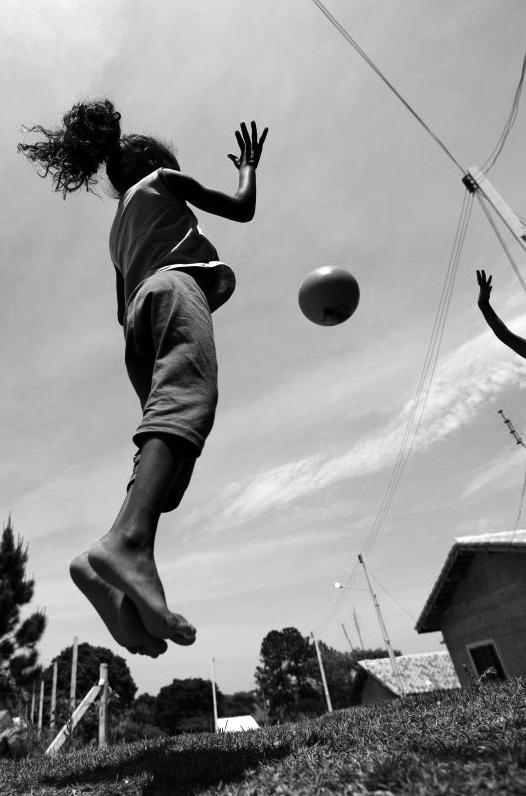
44% EUROPEAN POPULATION practicing sport at least once a week.
21.5% UNITED STATES POPULATION engage in sports and exercise per day.
These data points hint at the fantastic platform of sports, but we know that at its core, sport is yet to realize its full potential to contribute to the good of all. With the rapid spread of sport globally and the perceived unlimited potential for economic growth, the limitations of existing frameworks and structures of sport are also getting exposed, becoming obstacles to capitalize on sport as an opportunity to address social and environmental injustices.
This creates a big opportunity for changemakers to fill in the gap with their innovations. There are many global social entrepreneurs already addressing these issues through sport, bringing us to a historic moment with the world of sport being in a unique position to tackle complex systemic issues and play an active role in contributing to positive social change.
SHIFT A
Invest in the whole person to activate the agency of individuals - transforming their lives and the lives of those around them.
SHIFT B
Build a more inclusive and empathetic society - providing opportunities for all to thrive.
SHIFT C
Leverage the footprint of sportsgiving purpose to communities with shared goals and assets.
SHIFT D
Expand the responsibility of the sport industry from business to socialMeasuring success through social value creation and creating shared value
Conventional sports have primarily been focusing on athletic performance and competition, overlooking the social and cultural outcomes sports can achieve. This “win at all costs” mentality exists not only in professional sports but among youth sports, community sports services and educational settings. By emphasizing competition over personal development, participants can experience pressure to win, tying their self-worth to their latest performance. This can exclude many from engaging in sports throughout their lives. While competitive performance is one of the key aspects which makes sports attractive to many, more holistic alternative models are needed.
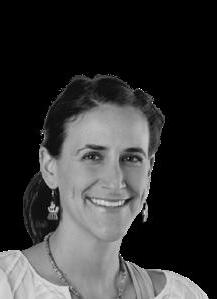
Sport changemakers believe that sport is a unique means to learn, build identity and enhance the lives of individuals. They help people develop an identity as someone who wants to do the right thing, shifting the
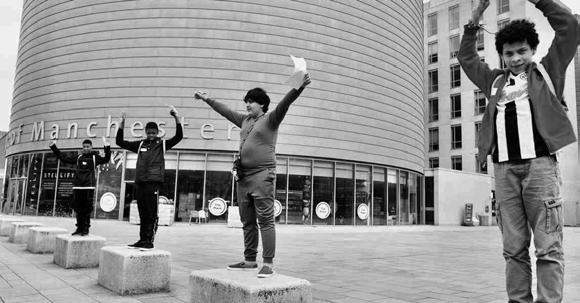
mindset from becoming “better athletes” to “better people” and fostering the values of a good citizen – empathy, leadership, teamwork, and agency - particularly for children and youth.
By prioritizing the educational, health and social development outcomes of sport, the developed identities activate the agency of the individuals. It brings different perspectives to their lives and prepares them to play responsible and constructive societal roles.
By investing in the development of the whole person we can support them to align their values with their actions, make a meaningful difference, and contribute to a cause greater than themselves. At a competitive level this can support athletes to recognize the significance of using their platform for good, and their activism as their voices and actions can play a pivotal role in igniting important conversations, raising awareness, and driving positive social change.
Our goal is to develop better global citizens. A global citizen is someone who understands firsthand why they care about themselves, others, and the world, and knows that they can always create change by taking action.”
DINA BUCHBINDER , Ashoka Fellow, Mexico
INVEST
Working against the dominant conception of sports as a sphere for flamboyant and ruthless competition, Jim Thompson and the Positive Coaching Alliance (PCA) continues to reestablish competitive athletics as a space in which all youth can acquire the skills and values they need for lasting success. Developing a new model of coaching called the DoubleGoal Coach™ and working with youth sports organizations and schools, PCA is shifting the culture of sports away from a model of entertainment to a model for education.
Founded in 2010 by Fabrice Vil, Pour3Points (P3P) works directly with youth to promote positive civic engagement and community leadership at large. The program aims to surface self-awareness, interpersonal skills, technical knowhow, and set a positive environment for change, skills critical to leverage sport as a life-skills development opportunity for program youth. A “train the trainer” model enables Fabrice and P3P to scale provincially and nationally. The strategy selects, trains, and certifies P3P trainers to be hired by school boards and take charge of training coaches across their respective jurisdictions and sports. The combination of P3P-certified coaches acting as leaders and ‘P3P lite trainees’ aims to elevate the overall coaching quality and supportive environment for this new type of coach.
By building an ecosystem that utilizes sports to empower and inspire active
citizens (changemakers) Mohamed Amine Zariat addresses the lack of useful activity and learning opportunities for the most disadvantaged youth by helping them become active contributors to their families and communities, unlocking their human potential, and building new skill-sets vital in today’s fiercely competitive job market. In addition to rigorous sports training, the enhancement program comprises a full self-development and social engagement package, which includes but is not limited to psychological counseling, self-worth training, pedagogical follow-up, career counseling, and experiential programs on personal hygiene, health and ethics as well as entrepreneurship skills.
Dina Buchbinder is transforming education systems with Educación para Compartir/ Education for Sharing (E4S). E4S aims to foster social and environmental awareness, as well as learning values like teamwork, empathy and fair play, through an action-oriented education model. By incorporating the SDGs, and Social Emotional skills through physical activity, interactive games, participants are able to reflect and act as part of their learning process. The E4S approach promotes an active education and makes learning fun and engaging for students. Through E4S students not only gain knowledge, but also develop essential skills such as problem-solving, critical thinking to spark personal and collective agency. The E4S model fosters connections between different school settings, where kids, families, and educators find the power within to actively participate in addressing local and global challenges
Outdated societal frameworks can discourage participation in sport for certain groups of people because of their age, gender, class, disability, or race. Factors such as gender roles, traditional beliefs, or cultural expectations may discourage participation and engagement in sports activities. Marginalized groups may encounter discrimination and prejudice in sports, making them feel unwelcome or excluded. This can manifest as unequal treatment, stereotypes, racial bias, or genderbased discrimination.
Furthermore, the absence of diverse role models and representation in professional sports can contribute to the underrepresentation of disadvantaged groups. Limited visibility of successful athletes from these groups can deter potential participants and limit their aspirations. By increasing opportunities for everyone to practice sports, we create a more equitable, inclusive, and healthier society that values diversity, promotes social integration, and provides opportunities for all individuals to reach their full potential.
Sport changemakers are working to narrow these gaps by challenging perceptions not only in the field of sports but also in wider
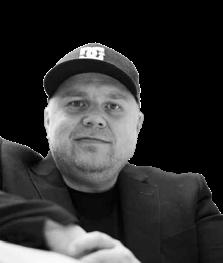
society. Many of them use sports to integrate a multi-faceted approach involving policy changes, community engagement, financial support, and promoting inclusivity in sports programs. It is essential to foster equal opportunities, provide financial assistance, improve infrastructure, challenge stereotypes, and promote diversity and representation at all levels of sports participation.
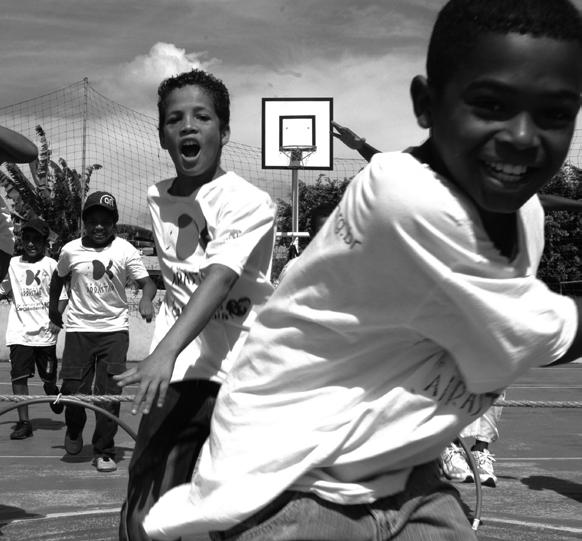
Making sports more inclusive and less competitive. I think sports could be a great way to promote well-being of the whole community.”
MARKUS RAIVIO, Ashoka Fellow, Finland
SHIFT B
BUILD A MORE INCLUSIVE AND EMPATHETIC SOCIETYPROVIDING OPPORTUNITIES FOR ALL
BUILDING PROGRAMS THAT CHANGE THE CONVERSATION BY VALUING THE SKILLS OF UNDERREPRESENTED GROUPS
Mel Young pioneered the Homeless World Cup to transform the impact football could have on the lives of homeless people around the globe. The world-class tournament has initiated, supported, and catalyzed a wave of professionalized homeless leagues around the world, with National Partners that provide access to the professional services needed to ensure the transformative impact football can have on individuals’ lives takes root – be it educational, employment, health or legal advice.
Steffi Biester In Germany, young people grow up in a society marked by social inequalities, in which almost every 5th child is at risk of poverty and social exclusion. These children and young people regularly experience that they are never good enough - no matter how hard they try. Due to how learning is understood, organized, assessed, and evaluated, their constant experience of being deficient, less talented, and less worthy is being exacerbated in the German school system. Steffi Biester’s answer: combining street soccer with an innovative, holistic, science-based, and fieldtested educational concept that promotes an inclusive normative of performance and re-writes narratives of success. KICKFAIR accompanies young people through a multiannual process of gradually taking over ownership as changemakers themselves and schools to transition processes by deeply embedding the concept into their DNA.
In 2010, Admir Lukacevic founded Idrott Utan Gränser (IUG) or “Sports Without Borders.”
The program cultivates a generation of young people eager to take the necessary risks and responsibility to shape their lives. The program uses existing, underutilized spaces - including PE classrooms, playgrounds, and schoolyards after school, on weekends, and holiday hours – to promote active learning and new relationships across social groups.
Sara Diestro is making a positive impact on children and youth in Lima and other Peruvian cities through Centro de Educación y Desarrollo Comunitario by leveraging their love for football and affiliation with major sport clubs. Through her program, she supports their educational, health, and social development. Sara’s approach focuses on building mediation skills to foster understanding among diverse individuals and utilizes streetfootball to reclaim public spaces. Through football, she addresses challenges like the need for fair play and gender equity, on and off the field. The model emphasizes the holistic development of young people, engaging educators and adult allies to recognize their contributions and promote social skills. Sara’s organization has facilitated forums to discuss the positive impact of sport and advocated for policy change and investment.
Markus Raivio developed a Guided Functional Peer Support model (GFP), an innovative combination of proven theories from occupational therapy, human development, and special education. Markus leverages from GFP on Kukonori, an initiative with a partner NGO that applies GFP to help recovering addicts find work. GFP is also used to train addicts as walking football coaches. Kukunori provides individuals and organizations with
the tools and inspiration to be the best they can be while working toward a broader cultural shift in the health and social care sectors, promoting active citizenship and societal participation among mental health survivors and people with disabilities.
Beka Ntsanwisi
from rural areas to physically, financially and emotionally empower them to help them cope with the responsibilities they face as pillars of support in their in the villages. Beka recruits elderly women and organizes them into structured football teams according to the community where they come from and plans and manages tournaments, competitions and leagues to keep them motivated and interested to stay fit. Beka inspires and shows the world that they can defy stereotypes and achieve beyond expectations.
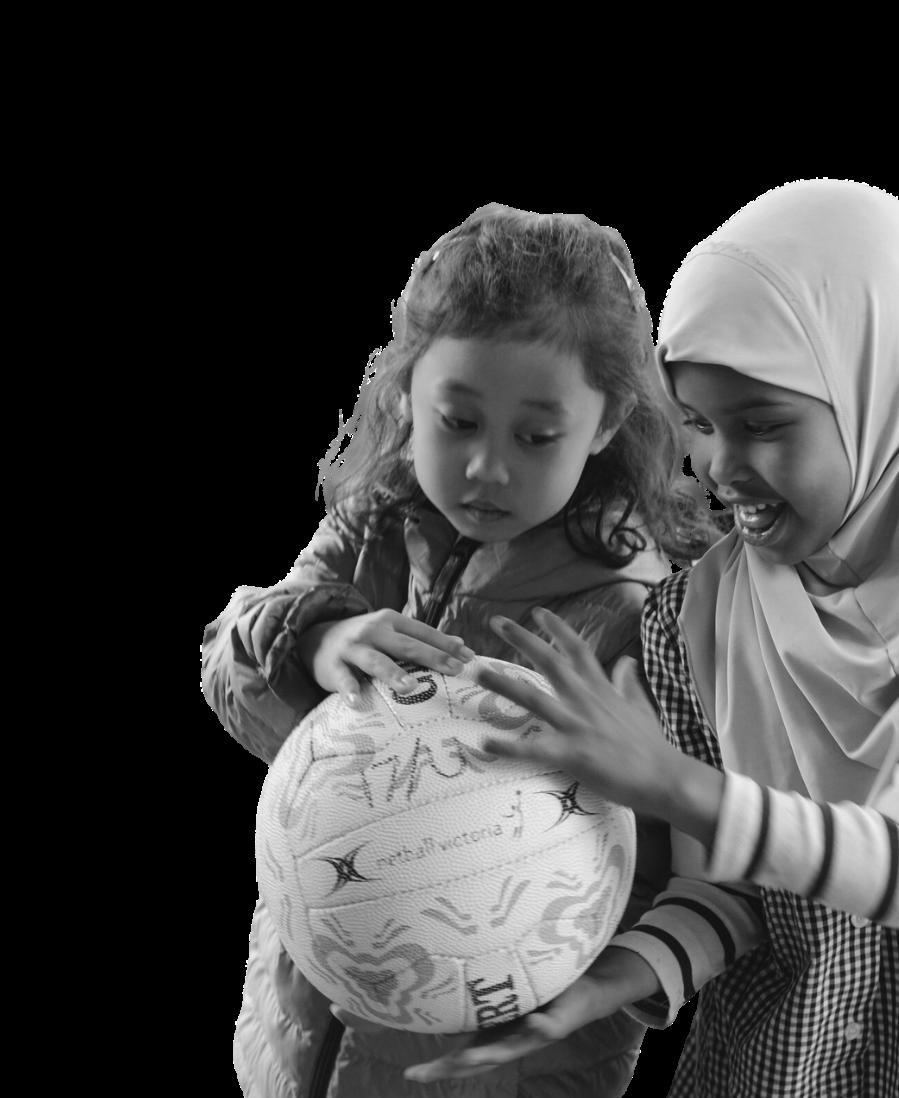
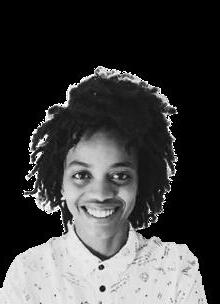
Many sport changemakers recognize the need for a safe space in communities for those who are left disconnected without a sense of belonging. They believe that the accessibility and intersectionality of sport brings those people together, which creates a shared sense of identity. Many people come in contact with sport, whether it’s playing or watching. Sport allows changemakers to reach everyone, from the kids to the elderly.
Sport can nurture leadership identities that care for others in the community, society, and world and take actions to make positive changes. Sport changemakers are bringing together community leadership to build a shared identity and goals tied together through sport. This community of leaders enables more effective changemaking that truly meets the needs of the communities driven by their members. Ultimately, people benefit from this community of peers as a “healing mechanism” revaluing community spaces, turning run-down infrastructure into thriving and sustainable community hubs and even feeding into professional sport to enhance its social contribution in the community.
Professional sports teams can actively address community needs, support social causes, and contribute to the overall well-being of the community. Not only do they have a platform and influence that can be utilized to raise awareness and advocate for social issues, but they can also work hand in hand with the community to amplify the impact of existing initiatives by forming strategic partnerships that leverage their resources, infrastructure, expertise, and networks to address social challenges more effectively.
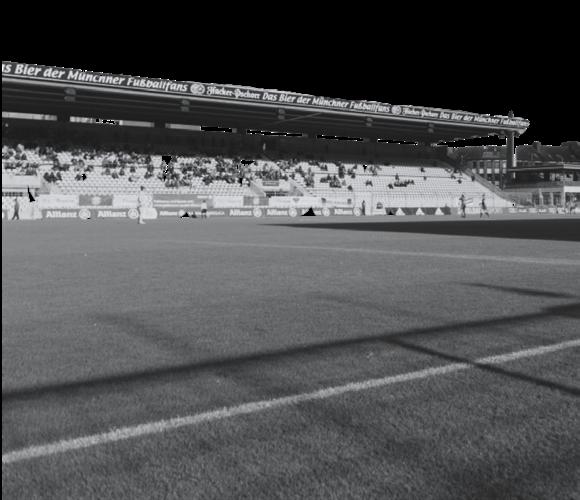
“The idea is that the projects are carried out in direct contact with the communities so that they truly meet their demands.”
DIANE PEREIRA SOUSA , Ashoka Fellow, Brazil
EMPOWER TEAMS AND COMMUNITIES TO SELF-ORGANIZE AND DEFINE THEIR OWN PURPOSE, IDENTITY AND GOALS
Kjartan Eide is redesigning recess in schools by adding an incentive system that urges young people to engage in physical activity and serve as role models for their classmates. Trivselsprogrammet (TL), which means Wellbeing Program in Norwegian, creates a system for active play in elementary and junior high schools that puts young people in charge. The core feature of the program is the student election of Activity Leaders twice per school year. Classmates nominate Activity Leaders who they believe exhibit good values toward others such as how kind, empathetic, and respectful they are of others. TL is run through a school network model to connect schools in the same geographic area and to ensure the systematic and cost-effective scaling of the model. The core principle of Kjartan’s model is that no one should be alone at recess, and everyone should feel that they have a place and a purpose.
Prompted by her own negative experiences as a victim of online hate speech, Rosy Russo founded Parole Ostili (Hostile Words) with the vision of normalizing digital citizenship across all spectrums of society. She is working to create awareness, capture commitments and drive action towards the education, prevention, and championing of this new type of digital citizenship. AC Milan is now using the capacity building tools and support of Rosy’s organization to focus on addressing issues such as the prevention of ‘hate speech’ online, especially towards the most vulnerable communities among its fan bases. The club is looking to educate and drive campaigns among fans to champion this value and mission of the club they love.
Diane Pereira Sousa places the right to play and practice sports in safe and inclusive environments as a guiding principle to her innovation. She created the Sports and Citizenship Incubator at Instituto Formação to design, execute, manage, disseminate and monitor different methodologies that use sport and leisure as a tool for social change. Diane’s unique model was created to re-signify community spaces (squares and schools) in both rural and urban areas, based on ethnography, use of local raw materials, and participatory negotiation in decision-making, always having sports as a conductor.
Jill Vialet founded Playworks as a comprehensive program to create safe and inclusive environments for play and physical activity focused on the school day. Playworks puts recess culture into the hands of students because they believe that at a great recess, all students have real choices in how they play, and feel empowered to play on their own or to start activities with other students. Playworks collaborates with school staff to orchestrate lunchtime and recess activities and to incorporate physical activity and play into the classroom. Playworks also coordinates trainings for school staff and other youth service providers to ensure that sports and play opportunities throughout a child’s day are healthy, safe and inclusive.
ACTIVATING SPORTS NETWORKS AND INFRASTRUCTURE TO PROVIDE COMMUNITY-DRIVEN SERVICES IN THE FIELDS OF HEALTH, NUTRITION, EDUCATION AND SOCIAL DEVELOPMENT
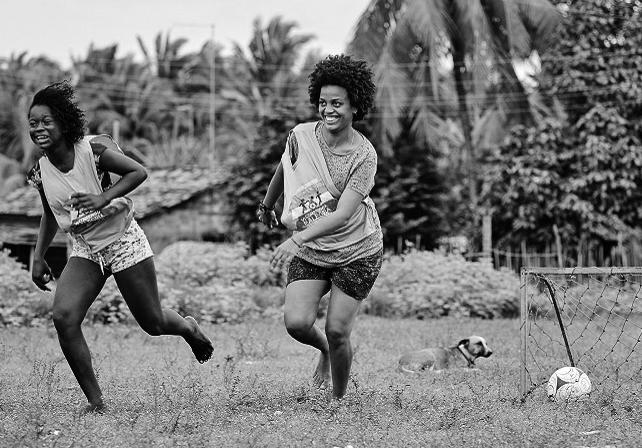
Scott Strode is building a robust sober active community based support network for recovery from Substance Use Disorder (SUD) through which individuals can form meaningful relationships, sense of self-esteem, and competence through group activities. The Phoenix is an international network of over 300,000 members in over 1600 communities and online offering volunteer-led programming fulfilling the need for alternatives, fostering healthy connections, and battling isolation which has been a significant challenge of sobriety. Scott and his team are nurturing an ethos of building connection and empathy and contributing to the community by offering free
physical and social activities (to anyone who has been sober for 48 hours or more), peer-topeer support models in the recovery path, and a dynamic volunteer development program..
Defensores del Chaco was born in 1993 in a favela in Argentina where young people where fighting for the territory with guns over who would sell drugs there. Fabián Ferraro, who was pursuing a successful career as a professional football player, started the organization with some help from friends who were working as social workers in the area to generate space for young people. Their work focused on habit development and urbanization, using leagues of organizations as a method of awareness raising and influencing public policy and creating a street football methodology to empower women and challenge gender roles.

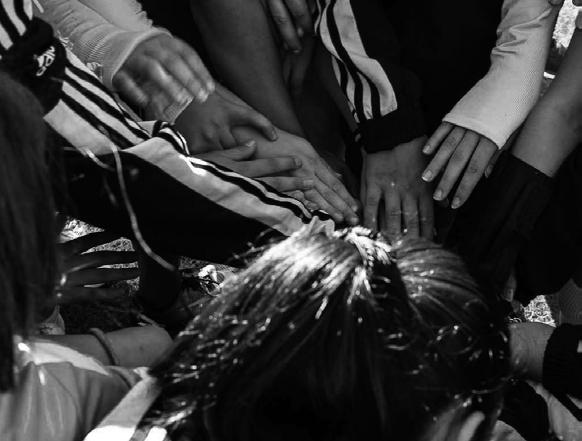
The sport industry first and foremost focuses on performance and competition with a strong business-oriented mindset. Although this mindset of the industry has been successful in attracting more people to sport, it tends to overlook great opportunities to channel the energy towards societal good. Sport changemakers see the need to expand the industry’s focus to include the creation of social value by breaking down its disproportionate power dynamics.
As is increasingly the case in other industries, businesses, national, and international governing bodies can no longer exist without working towards social value creation to be truly successful. Sport changemakers are working to integrate social and human aspects of sports amongst clubs, athletes and fans; going beyond the barrier between performance sport and social change. They are using the unique platform and opportunity sport represents to contribute to positive change, expanding the focus of the sport industry from performance and business-oriented values to social contribution.
Contributing to positive social impact allows sport as a business to engage with a broader range of stakeholders, including fans, sponsors, local communities, and government entities. By actively participating in social initiatives, they can foster meaningful connections, build partnerships, and strengthen relationships, which can have long-term benefits for everyone. Aligning its goals with broader societal needs is not only a responsible and ethical choice but also a strategic one that can lead to enhanced development of the sport ecosystem.
Outside of sports, businesses that understood that they cannot exist without social responsibility are very successful”
JACEK PURSKI , Ashoka Fellow, Poland
SPORTS ORGANIZATIONS LEVERAGE THEIR BRAND AND INFRASTRUCTURE TO MULTIPLY THE IMPACT OF SOCIAL PROGRAMS
Alison Tickell was consumed by the question: “how do you leverage a whole industry to fight climate change, and build a model that can be applied to industries across sectors?” She believes that we underestimate the power of culture in our lives - music, theatre, TV and film, sports - as repositories of cultural values and narratives that define our society. Culture offers a vital arena for shared community and experience. And what bigger shared experience is there than climate change?
Alison is using the levers of arts and culturean industry that contributes £10.8 billion a year to the UK economy - by changing it from within.
Kelly Davies is re-engineering the role local sports clubs can play in their communities. Rather than being a venue for sports and matches alone, Kelly believes they are an ideal public space to revitalize communities from within and take on a role that spans issues from employment and education to inclusion and health. Kelly puts young people in charge of managing their local sports clubs, enabling those who lack sufficient work experience and qualifications to gain transferable employability skills in an environment that is un-threatening and fun.
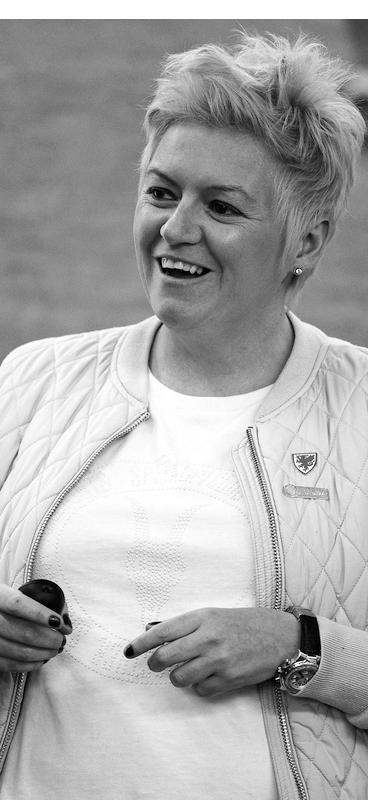
THEIR
Jürgen Griesbeck Citizen organizations around the world use football as a way to reach out to young people. While these groups have various goals—safer streets, better schools, improved health, a cleaner environment—they have a powerful tool in common. Football is
one of the few cultural forces that can shift society towards a better future for all. Jürgen Griesbeck co-founded Common Goal, a global impact movement for the world of football that unites organizations, athletes, clubs, brands and other stakeholders in football to radically collaborate towards the wellbeing of our people and planet..
Thorsten Kiefer harnesses the role model status of sport superstars, the power of fun, interactive gaming experiences and cuttingedge communication to tackle persisting taboos and change the “ugly” issues of sanitation and hygiene with positive emotion. Thorsten works to make improved solutions a shared aspiration and to facilitate lifesaving behavior change around these issues amongst all target groups. Through attractive storytelling and opportunities for co-branding as an incentive for further spread and active stakeholder involvement, Thorsten effectively tackles taboos, fosters commitment among politicians, and generates sustained interest of mainstream media and citizen organizations for water, sanitation and hygiene issues.
TURNING SPORTING EVENTS INTO LEARNING EXPERIENCES OR ASSESSING SOCIAL IMPACT AS PART OF PERFORMANCE
Felicite Rwemarika is using female participation in football to build self-confidence and social support among poor rural women in Rwandan society; enabling them to improve their lives and further the development of their communities. Felicite leverages the structure of teams and tournaments to facilitate women’s educational and economic empowerment. Every sporting tournament is transformed into an educational experience by bringing in institutions and individuals related to various topic areas. Additionally, Felicite is organizing the football teams into farming cooperatives to engage women in agribusiness; thereby creating systems through which women can raise their communities out of poverty.
Massimo Vallati is revolutionizing football to promote empathy, teamwork, inclusion, and leadership among players of all ages and abilities. His inclusive football system aims to activate local communities, particularly in urban peripheries, and address the issues of isolation, lack of opportunities, violence, and discrimination prevalent in traditional football. By redefining the rules and values of the game, Massimo creates a platform for young people to engage, empower, and become changemakers in their communities. Through his initiative, called Calciosociale, each game takes place within a championship that includes both matches on the field and out of the field, to challenge negative behaviors, build community cohesion, and transform the football field into a space where everyone can contribute positively to society.
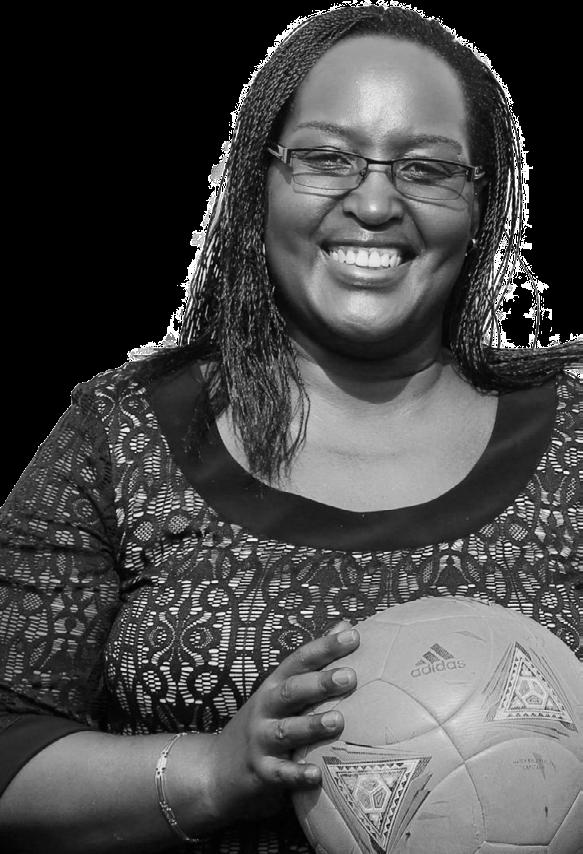
Sports changemakers are calling for radical collaborations and collective action to amplify the impact of sport for changemaking. The lack of communication and isolated efforts are the most critical bottlenecks in the field.
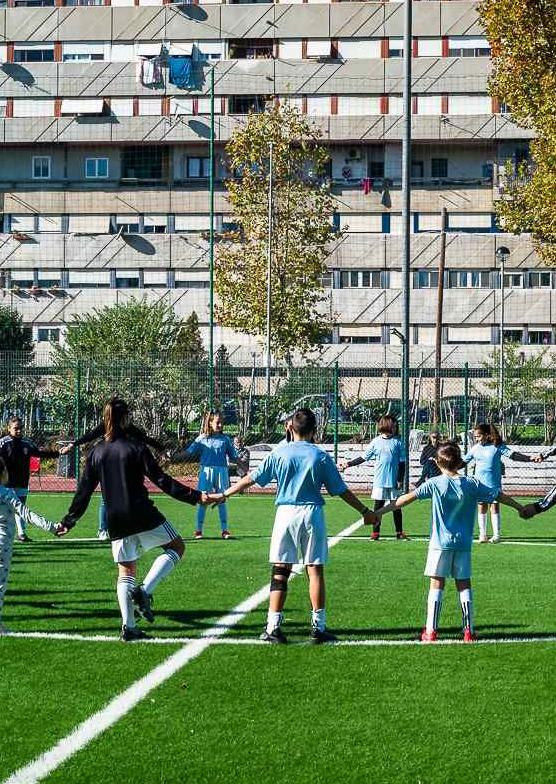
While there already are many stakeholders taking action, they tend to be disconnected from each other. With the intersectionality of sports, many projects would benefit greatly from the involvement of a wide range of stakeholders including sport clubs, athletes, governments, private companies, media, and academics and education institutions, and citizens to boost the impacts.
The report analysis provides the following recommendations to fulfil radical collaboration and collective action, highlighting mechanisms we heard from these industry experts:
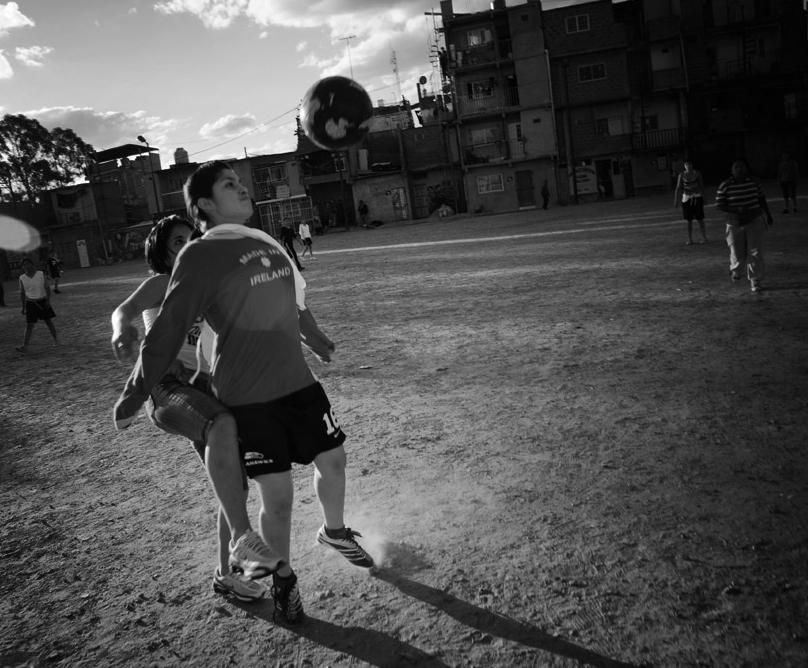
Many sports changemakers identified cross-sector partnerships as the most effective approach for establishing collective action with ecosystem players. Some key stakeholders include government, private sector, citizens, sport clubs, athletes, policy makers and academics. Each of those stakeholders needs to play a key role either as a resource generator, impact creator or impact accelerator.
The lack of financial support from the government was expressed by some changemakers as a key challenge. Sports for development hasn’t been well-understood among governments, and they seem to be less attracted to investing in a longer-term, sustainable and scalable way. Changemakers recommend aligning social change initiatives with government programs, policies and planning processes to tackle this barrier effectively. Examples include collaborating with government change leaders and engaging towards Sustainable Development Goals. Including policymakers in the projects to get buy-in on the overall approaches is beneficial too. Coordinating projects with governments not only secures financial support, but also offers networking opportunities to reach out to like-minded stakeholders.
support grassroots sports activities, especially through their Corporate Social Responsibility (CSR) initiatives. Small and medium-sized businesses can also play a key part in attaining localized impacts.
Sports without borders (Admir Lukacevic) - The project is designed to match with the Swedish curriculum. For instance, if there is a dance lesson as a part of PE class in the Swedish curriculum, the project would bring famous “dance superstar” to the school.

Sports businesses are increasingly working with the private sector to explore how they can grow their community impact initiatives. While some changemakers are concerned with “impact washing” when working with corporations, these partnerships can also
Oakland Roots – Based in Oakland, California, this purpose-driven football club is working to “harness the magic of Oakland and the power of sports as a social force for good”. They have been collaborating regularly with 6 local NGOs which utilize sports and arts to empower youth in Oakland as “purpose partners” (Oakland Roots SC, 2023).
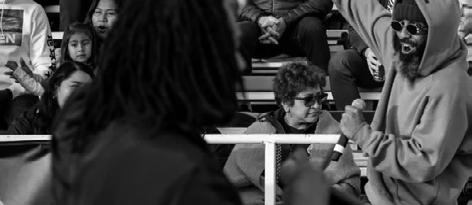
Sports clubs, associations and athletes are certainly the important stakeholders to work with. Many social entrepreneurs engage with sports clubs and athletes to amplify voices for positive change, with many athletes even starting their own social change initiatives. Working with sports associations can also provide opportunities to scale solutions, expand the network and highlight ongoing initiatives.
SPORT AND LIFE SCHOOLS (SARA DIESTRO) - Working with FIFA Foundation, the project has worked in Belen by hosting a forum to discuss the positive impact that sport can have in the life of people and society. They reached more than 120 people who are interested in replicating the project’s approach to their schools and their NGOs.

Citizens, usually as fans and consumers, also have the power to support changes by guiding the industry with their spending and enthusiasm. For example, fans have successfully advocated for stadiums and professional teams to use more sustainable alternatives to disposable plastics and food containers.
Academics and universities have been identified as one of the key sectors to collaborate with to validate the positive impact of sports on society. They can help expand measurement of impact for certain solutions and methodologies and engage in a deeper study of sport for social change as a field.
The benefit of reaching out to non-sport-related organizations has been apparent throughout the interviews, particularly when organizations are struggling to get involvement from sports clubs and federations. Many public institutions run projects focused on other fields such as education, health and immigration but there is a scope for leveraging impacts in those areas utilizing sports as a tool.
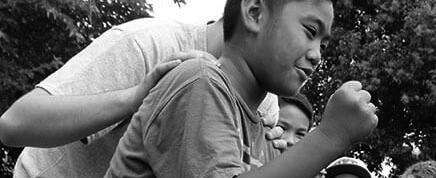
With the intersectionality of sports, changemakers need to effectively manage diverse stakeholders and communicate with a wide audience to promote their initiatives. Ownership conflicts within the stakeholders are highlighted as one of the crucial issues around stakeholder management. Individualism and insistence of ownership by the stakeholders can be the biggest risk in building successful communities for changemaking. Similarly, social entrepreneurs need to work together towards a shared voice eliminating the “winat-all-cost” mentality reflected as competition for funding and visibility amongst themselves.
CASE STUDY
GO GREEN INITIATIVE (PHILADELPHIA EAGLES) – Their 15-year plan, driven by fans and consumers, continues to push for sustainability as a priority for the team (Cummins, 2021).
Sports for social change need a shared voice to spread a deeper understanding of how sports can bring positive changes in society. By first understanding the issue we are trying to solve and then translating that into vernacular of each key collaborator, they can play a greater part in the project. In managing diverse stakeholders, changemakers need to find those with shared
interests and make sure that each stakeholder is encouraged and excited to accomplish the shared goals of the initiative.
Many sports changemakers put the local community at the forefront. The mindset needs to shift from “reaching out to as many communities as possible” to fostering a strong community culture with long-lasting changes. Local ambassadors, associations, NGOs and governments are key partners to create these local connections due to their interest in improving the communities they work in. Grassroots actions are the key to this localized work.
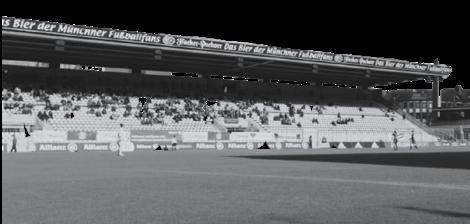
Whether we are talking of sports at the professional, youth or community level, most of our interviewees believe that sports clubs and athletes should, at a minimum, be using their voices to raise awareness and advocate for causes they care about. Ideally, we should aim for purpose-driven sports organizations and communities that have embedded changemaking into their daily lives. However, there are also major hurdles to overcome before getting there. Here are the main obstacles we have identified:
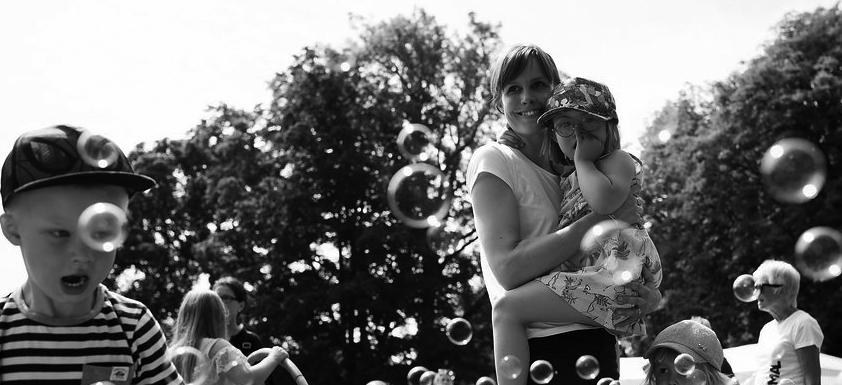
A. Sports professionals tend to have short careers, demanding complete focus, training, and competition.
B. Organizations often support initiatives as a public relations strategy rather than a long-term commitment to improving a community (“impact washing”).
KUKUNORI – (MARKUS RAIVIO) –Kukunori built teams and trained people to handle their own teams and areas, establishing over 30 walking football teams across Finland. Markus is now seeking ways to apply the model in other countries, exploring how to make social franchises.
Both sports professionals and organizations do not always support initiatives that are aligned with their values and purpose.
Athletes are at the center of sporting activity and with increased public interest in sport at all levels, their words and actions have become newsworthy around the world. The influence of prominent sports figures can be leveraged to shine a spotlight on important causes and help change societal mindsets by initiating public debate around these issues.
Conflicting opinions, team policies and sport federations’ agendas can make it difficult for athletes to use their voice to advocate for social causes. There is enormous potential in this space, but it also requires strong leadership to bring together sports figures with policymakers and changemakers to take society’s perception of athletes beyond a culture of celebrity to one of collective action.
There have been, however, some successes working with athletes being able to identify and champion causes that are close to what they see as their personal purpose. In these cases, we have seen not only true stewardship but also increased engagement and adoption amongst their peers.
While sporting events are ephemeral, we should not discount their role in contributing to long-term social change. Events and competitions provide an opportunity to connect and rally stakeholders (Sporting organizations, athletes, NGOs, media, etc.) around a particular call to action and sensitize the public toward a cause.
The International Olympic Committee has been working to reframe the way host cities think about the legacy of their Olympic Games. Traditionally, the legacy of sporting events is thought of as economic growth and investment in infrastructure. The International Olympic Committee now understands legacy as something that is actively built by focusing on what is created or improved before and after the games. Tracking the impact of the games in each of the host cities is an important piece of this work.
FUDE - a network of leagues of organizations using the league as a method of raising awareness and public policy influence.
“LET’S KICK RACISM OUT OF STADIUMS” - While working to fight racism in Poland, providing trainings for football clubs, NGOs, and police officers the organizers cooperated with football associations and players. Emanuel Olisadebe, a Nigerian-born football player for Poland, embraced this campaign which also allowed local organizations to leverage his performances to raise awareness about racist behavior.

Storytelling is an effective strategy in gaining better understanding from the public and the project’s stakeholders. To scale up a project, we need to convince stakeholders about the power of sports and that sports are not only for athletes and fans but a vehicle for education and development.
While some have pointed out the importance of advocacy, others have also voiced the need for prioritizing execution of large-scale projects. They encourage convincing thought leaders in society through a collective bottomup voice, identifying a coalition interested in building the ecosystem together.
their impact. Nurturing connections among changemakers enables organizations to understand their field better while interactions between stakeholders and beneficiaries can make the movement more inclusive.
Shifting the mindset of citizens is the key to creating long-lasting change. Some people might be reluctant to participate because of existing cultural and social stigma. Sports changemakers have encouraged people to adopt a new mindset by building trust between people. This is done through creating safe spaces and aligning a project with the cultural, social and individual needs of the community. As many people in the sports industry still tend to work with traditional ideas and approaches, changemakers see the need to bring new perspectives to maximize their impact.
PAROLE OSTILI (ROSY RUSSO)Identified 200 subjects from the sport world (journalists, athletes, team managers, etc.) and sent them the manifesto, asking them to “translate” the principles to their experience. They summed up the responses and created a manifesto to be signed by the stakeholders.
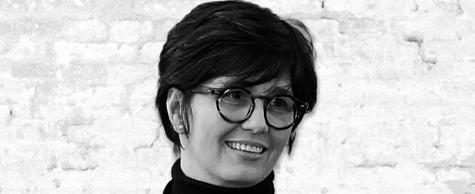
Many innovative projects and strategies already exist in the field of sports for development. These communities need to be connected to expand their reach and scale
Framing with the right language for different audiences enables us to find a common ground in approaching sport for changemaking. We need to map the priorities of stakeholders and consider how we can make them feel comfortable and self-determined with the language used. Data is an effective tool in convincing others of a project’s impact and potential for scaling up.
The network of changemakers needs to grow stronger by collaborating under a common set of frameworks and objectives, sharing knowledge and best practices with each other. Sport changemakers have utilized training and conferences to share knowledge and collaborate with each other to enhance existing models.
Social innovation is most effective when adapting proven models. Sport changemakers need to tap into the proven methodologies, modifying and redesigning approaches based on the local context.
Public funding comes with its own set of challenges, as funders sometimes expect to see significant results in the short term and have strict spending and reporting restrictions. Successful fundraising strategies are able to engage governments, corporations and sporting government bodies by building transparent funding routes and processes.
EWA SZMITKA - Organized a series of conferences in multiple locations in Poland to show how women can role model certain areas of sport like management, coaching, media, and psychology. The conferences were all led by women giving them increased meaning to their work while positioning them as thought leaders.
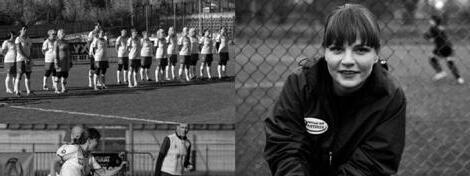
As often happens in civil society, accessing sustainable funding that allows sports social change initiatives to sustain and grow their work has been highlighted as a particular challenge. This is a strong contrast with sport sponsorship funding flow, with an even greater difference when looking at the rest of the sports industry as a whole.
Additional funding for project expansion has been a particular challenge as programs can be resource intensive and require trained staff. Although private sector funding has been increasing in recent years, continued scarcity of funding and the strong connection between programs and the social outcomes they solve, has directed efforts towards obtaining public funding.
Of the changemakers we interviewed, those that are most successful at fundraising have highlighted the importance of proving and quantifying impact as key elements of a successful funding pitch. The more that impact can be tied back to specific social outcomes, the more possibilities there are to tap into public funding. In fact, many of those interviewed have been able to obtain government funding at the local level by working with ministries that pursue social outcomes (education, health, welfare, etc.). Directing funding to the right sports for social change programs early on can support government agencies goals and prevent the need for funding corrective measures down the line.
A similar strategy can be followed with regard to athletes’ social change initiatives. With athlete entrepreneurship on the rise, it is important to support them in identifying a purpose they care about and exposing them to existing proven solutions within that field. This increases the opportunity for athletes to fund these existing programs or to consider replicating and expanding those solutions instead of defaulting to creating their own foundation. By providing the right channels for athletes to explore their purpose and a portfolio of existing proven organizations, we can grow a funding pipeline for systemchanging solutions.
The social franchise model is an effective strategy in implementing the localized grassroots approach by connecting and supporting established and emerging community leaders. New leaders can adapt the same philosophy and methodology to their local context and leverage these previously validated methodologies to raise funds locally.
One of the key strategies that aligns with this long-term approach is developing a business model. One such example is the pledge or membership model where individuals and organizations can commit a certain amount of funding long-term to support the operations of the initiative. Some organizations have gone as far as creating purpose-driven joint ventures with certain for-profit businesses that normally would distribute profit between their shareholders, but in this case the shareholders are the organization and the community being served.

- “Teachers are able to create new games to teach their contents using the E4S methodology, but from their local context, that way they continue to grow the repertoire and the learning though play, reflection and action movement.”
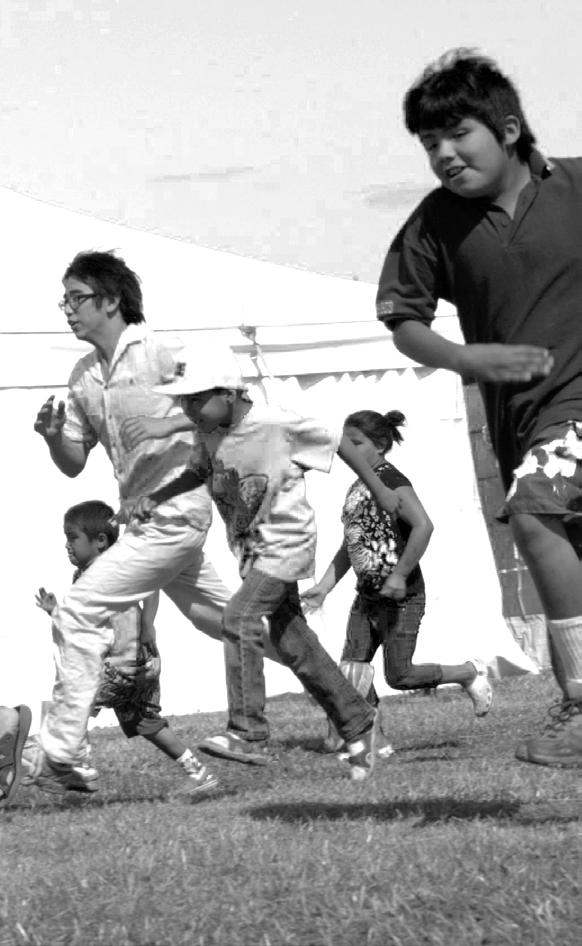
With most funding partners looking for proven impact and working with a short-term perspective, projects need to achieve high success in a short amount of time. This limits the capacity of sports organizations to cover their overhead costs and invest in long-term innovation and development initiatives. Social change requires working with youth at the grassroots level. The impact of this work might take years but has potential to obtain media attention and attract influential people and organizations.
Sports changemakers are calling for radical collaboration and collective action to amplify the impact of sport as a platform for wide-scale social change. Recent shifts in the sports ecosystem hint that the old system and ways are not working. There are already many changemakers demonstrating that all actors have the power to enact positive change and seed new directions for sport to create impact.
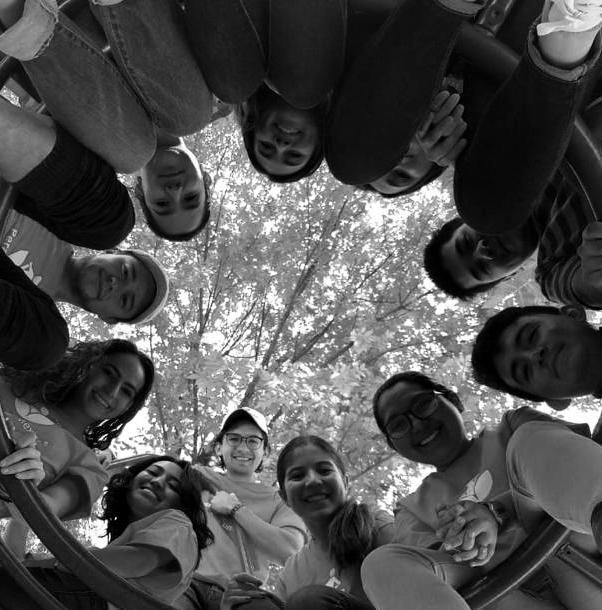
Every day, more key players across the sport industry are amplifying new narratives and social innovations, highlighting the opportunity at hand for us to embrace a new sports framework.
• Brazil’s Minister of Sport and Ashoka Fellow, Ana Moser, has publicly declared that sport is too conservative as the values of athletes and fans continue to conflict with decisions made by sport’s governing bodies (Latif, 2023).
• Athlete activism for climate action is on the rise. For example, Austrian skiing star, FIS athlete, and Protect Our Winters Ambassador Julian Schütter penned an open letter to FIS demanding action as winter sports become at risk of disappearing because of climate change (ESPN Internet Ventures, 2023).
• Meanwhile, media, in a growing number of global contexts, is starting to explore sports’ impact on the environment and questioning athletes and coaches about the impact of their travel on climate change (BBC, 2022).
We have a unique opportunity to collectively transform the sector, to learn from sport for social change initiatives and activate systems changing solutions that leverage the reach and resources of the sport ecosystem. When we do this, we will accelerate radical change and foster new ideas led by empowered change leaders who can create more inspiring and equitable futures.
Drawing on the insights of sport changemakers, Ashoka’s Sport for Changemaking team has identified four pillars for the sport ecosystem to accelerate towards an Everyone a Changemaker World.
Increasing funding towards system-changing innovations. All Ashoka Fellows interviewed for this process mentioned the importance of the Fellowship in investing early on in their new solutions. Flexible funding at the
right time can contribute to covering overhead costs and be a long-term investment in radical innovation. We should continue to find, select, accelerate, and champion these new ideas. Join us as a sport club, athlete, governments, corporation or as citizens to find, select, accelerate, and champion these new ideas.
Scaling wide and deep with local communities. Sport changemakers are calling for new metrics of success, shifting from “reaching out to as many communities as possible” to metrics of social capital, whereby financial and non-financial support provides the right resources to enact a strong community culture with long-lasting changes. Local ambassadors, associations, NGOs and governments are key partners for international NGOs, corporate funders, and policymakers to create these local connections due to their interest in improving the communities they work in. Scaling out, innovative projects and initiatives, need to be connected through a shared vision and common language. This would allow the network of changemakers to grow stronger by collaborating under a common framework and objective, sharing knowledge and best practices with each other.
Embracing a purpose-driven sports industry. Sporting bodies, corporations, and athletes can all positively contribute to social change by drawing on their unique connection to the sporting industry, whether it is through their consumer market, the community that fosters their athletic success, or the policies they establish for the ecosystem. With athlete entrepreneurship on the rise, for example, it is important to support them in identifying a purpose they care about and connecting them to existing proven solutions within that field. By providing the right channels for athletes to explore their purpose and a portfolio of existing
proven organizations we can grow a funding pipeline for deeply transformational solutions.
Changing the narrative of success through sport. By leveraging collaborations with the media and elevating the platform of sporting events, we can accelerate the reach of sport for changemaking stories, amplifying the message that everyone in the sports ecosystem can be a powerful contributor to the good of all.
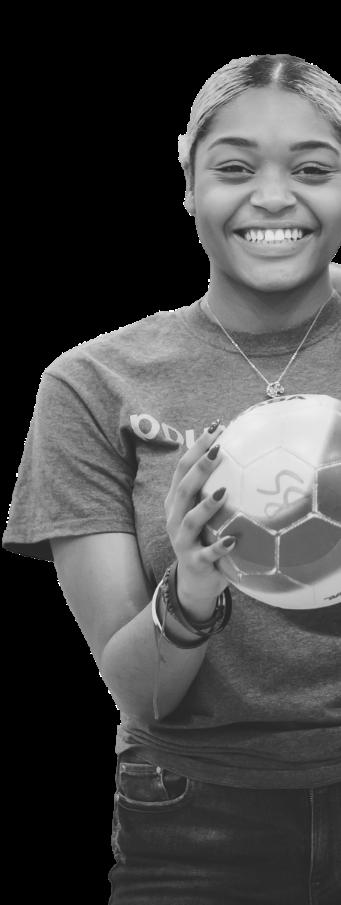
Coaches, business leaders, fans, teachers, athletes at all levels and even infrastructure all have a role to play in actively imagining and creating a future in which everyone can thrive. We will only be successful if each of these actors has a bias to action and the tools required to create their desired futures. Let us each be active contributors in transforming sport into a driver to positive social change.
We are ready to collaborate and advance the sport ecosystem together. Ashoka’s Sport for Changemaking Team
Get in touch: sportforchangemaking@ashoka.org
Website:
https://www.ashoka.org/en-us/sportchangemaking
Ashoka has mapped over one hundred Fellows using sport as a tool to create an Everyone a Changemaker world. This section presents the changemakers that shared their experiences, visions, and recommendations for a new sport paradigm with our team.
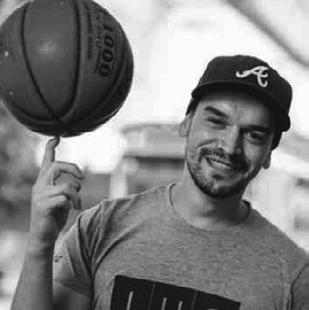
ADMIR LUKACEVIC
Sweden
Idrott Utan Gränser (IUG)
ALISON TICKELL
United Kingdom
Julie’s Bicycle
CLEMENS MULOKOZI
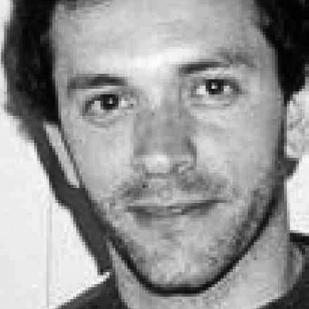
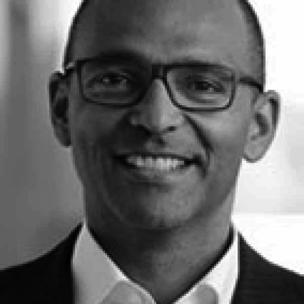
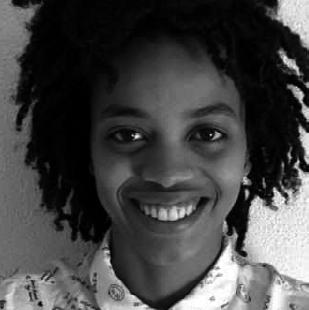
Germany, Tanzania Jambo Bukoba
DIANE PEREIRA SOUSA
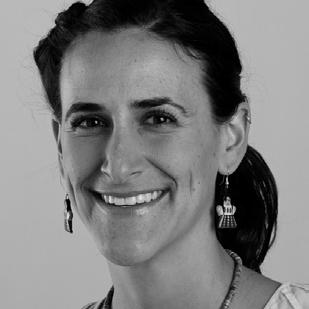
Brazil
Instituto Formação – Incubadora de Esporte e Cidadania
DINA BUCHBINDER
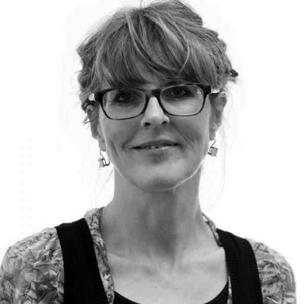
Mexico
Educación para Compartir
FABIAN FERRARO
Argentina
FUDE and Defensores del Chaco
FABRICE VIL
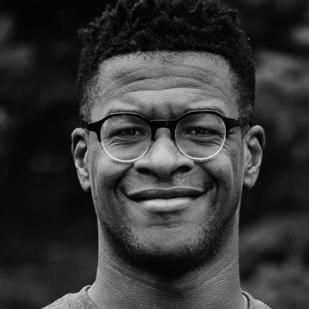
Canada
Pour 3 Points
JACEK PURSKI
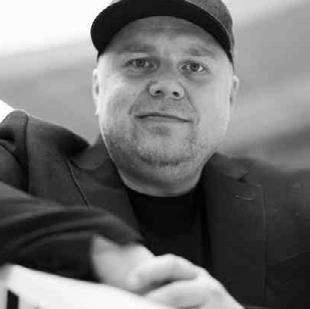
Poland
Institute of Social Safety
JILL VIALET
United States Playworks
JIM THOMPSON
United States
Positive Coaching Alliance
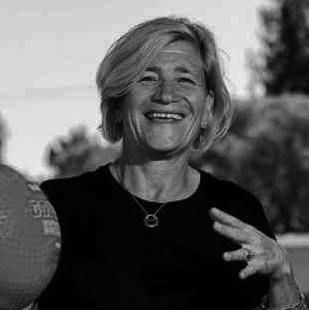
JOHANN OLAV KOSS
Norway, Canada Right to Play
JÜRGEN GRIESBECK
Germany
Common Goal
KJARTAN EIDE
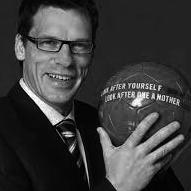
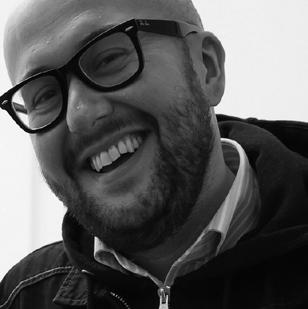
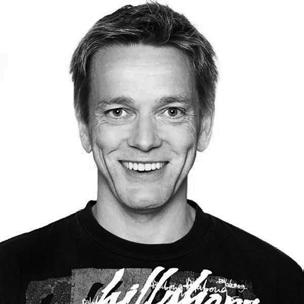
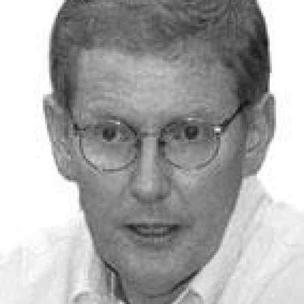
Norway
Trivselsprogram
LUKE DOWDNEY
Brazil
Luta Pela Paz
MARKUS RAIVIO
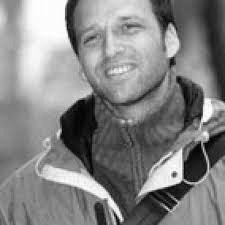
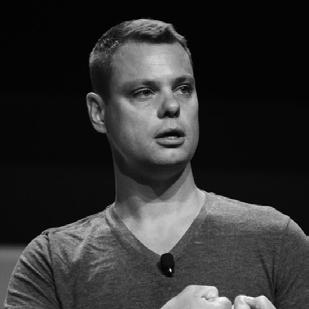
Finland
Kukunori
MEL YOUNG
United Kingdom
Homeless World Cup
MOHAMED ZARIAT
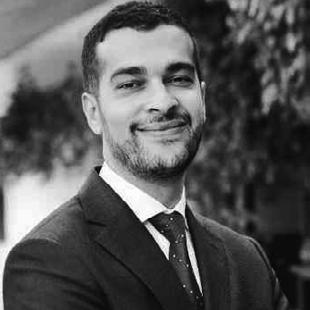
Morocco TIBU
ROSY RUSSO
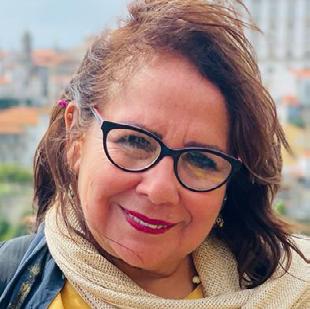
Italy
Parole Ostili
SARA DIESTRO
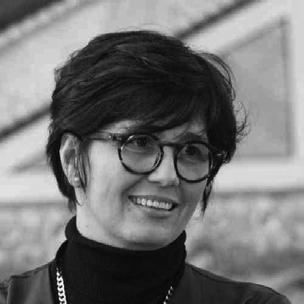
Peru
Centro de Educación y Desarrollo
SCOTT STRODE
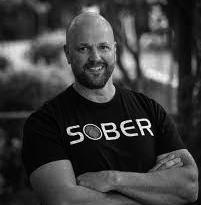
United States
The Phoenix
STEFFI BIESTER

Germany KickFair
SOUADOU DIABATÉ KONÉ
Mali
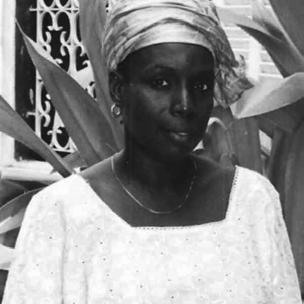
Association Malienne pour la Promotion de la Jeune Fille et de la Femme (AMPJF)



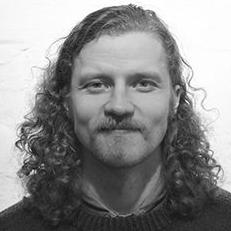
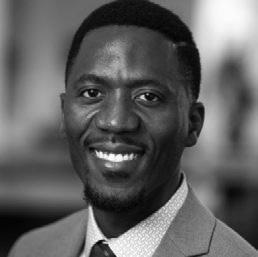


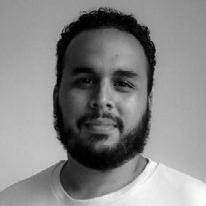
(APPENDIX B)

“NEVER AGAIN” ASSOCIATION. (2023, June 21). Against racism in the stadiums. Retrieved from “NEVER AGAIN” ASSOCIATION: https://www.nigdywiecej.org/en/projects/against-racism-in-thestadiums/150 -articles-from-2002/2152-against-racism-in-the-stadiums
BBC. (2022, September 6). PSG football coach faces backlash over ‘Sand yacht’ response to private jet question. Retrieved from BBC News: https://www.bbc.com/news/world-europe-62809829
Bureau of Labor Statistics. (2022, June 23). Average percentage of the population engaged in sports and exercise per day in the United States from 2010 to 2021 [Graph]. Retrieved from Statista: https://www.statista.com/statistics/189562/daily-engagement-of-the-us-poppulation-insports-and-exercise/
Cummins, E. (2021, April 26). The Philadelphia Eagles are driving the NFL toward a Greener Future. Retrieved from Popular Science: https://www.popsci.com/story/environment/sustainablenfl-stadiums/
ESPN Internet Ventures. (2023, June 21). Leading Australian athletes call for greater action on climate change. Retrieved from ESPN: https://www.espn.com/rugby/story/_/id/30948666/leadingaustralian-athletes-call-greater-action-climate-change
Eurostat. (2022, April). Statistics on sport participation. Retrieved from Statistics Explained: https://ec.europa.eu/eurostat/statistics-explained/index.php?title=Statistics_on_sport_participation
FIFA. (2023, January 18). One Month On: 5 billion engaged with the FIFA World Cup Qatar 2022™. Retrieved from FIFA: https://www.fifa.com/tournaments/mens /worldcup/qatar2022/news/onemonth-on-5-billion-engaged-with-the-fifa-world-cup-qatar-2022-tm
International Olympic Committee. (2022, September 6). Olympic Games Tokyo 2020 watched by more than 3 billion people - olympic news. Retrieved from Olympic News: https://olympics.com/ ioc/news/olympic-games-tokyo-2020-watched-by-more-than-3-billion-people
Latif, F. (2023, January 10). ‘o esporte É conservador e se mostrou de direita’, Analisa Ana Moser. Retrieved from Ana Moser afirma: ‘O esporte é conservador e se mostrou de direita’: https://www. uol.com.br/esporte/ultimas-noticias/2023/01/10/o-esporte-e- conservador-e-se-mostrou-de-direitaanalisa-ana-moser.htm
Oakland Roots SC. (2023, March 11). Purpose partners. Retrieved from Oakland Roots SC: https:// www.oaklandrootssc.com/purpose-partners/
United Nations Inter-Agency Task Force on Sport for Development and Peace. (2003). Retrieved from Sportanddev.org: https://www.sportanddev.org/sites/default/files/downloads/16__sport_for_ dev_towards_millenium_goals.pdf
HOW SPORT, PLAY, AND PHYSICAL ACTIVITY HAVE THE POTENTIAL TO SHIFT MINDSETS